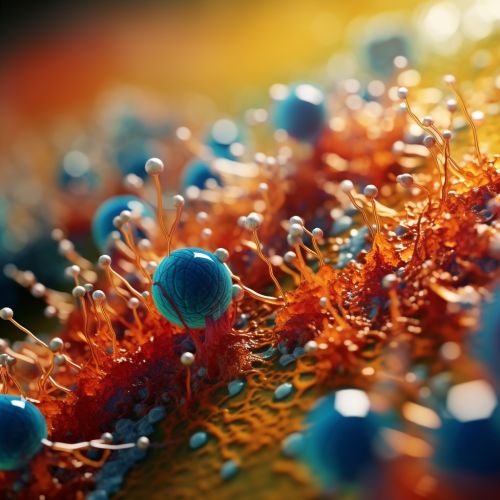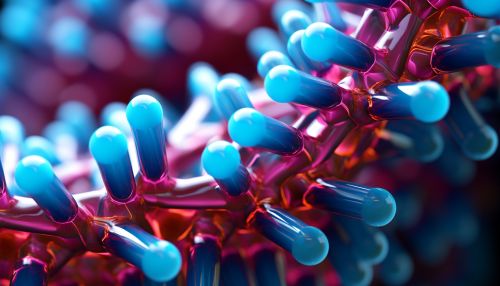Cytidine Deaminase
Overview
Cytidine deaminase (CDA) is an enzyme that plays a crucial role in the metabolism of nucleosides by catalyzing the deamination of cytidine and deoxycytidine to uridine and deoxyuridine, respectively. This process is an essential part of the pyrimidine salvage pathway, which allows cells to produce nucleotides from preexisting molecules instead of de novo synthesis.


Structure and Function
Cytidine deaminase is a homodimeric enzyme, meaning it consists of two identical subunits. Each subunit is composed of approximately 150 amino acids and has a single active site that carries out the deamination reaction. The enzyme's active site contains a zinc ion, which is crucial for its catalytic activity.
The primary function of CDA is to maintain the balance of nucleosides in cells. By converting cytidine and deoxycytidine to uridine and deoxyuridine, CDA helps regulate the amounts of these molecules available for DNA and RNA synthesis. This is particularly important in rapidly dividing cells, such as those in the immune system and cancer cells, where nucleoside balance is critical for cell proliferation and survival.
Role in Disease
Mutations in the gene encoding CDA can lead to a deficiency in the enzyme's activity, resulting in a rare genetic disorder known as Cytidine Deaminase Deficiency. This condition is characterized by a buildup of cytidine and deoxycytidine in various tissues, leading to a range of symptoms including growth retardation, immunodeficiency, and neurological abnormalities.
On the other hand, overexpression of CDA has been observed in several types of cancer, including leukemia, lung cancer, and breast cancer. High levels of CDA can increase the resistance of cancer cells to certain chemotherapeutic drugs, making it a potential target for cancer therapy.
Therapeutic Applications
Given its role in drug resistance, CDA has been explored as a target for cancer treatment. Inhibitors of CDA have been developed and tested in preclinical and clinical trials, with some showing promising results. For instance, the CDA inhibitor Tetrahydrouridine (THU) has been used to enhance the effectiveness of the chemotherapeutic drug Cytarabine in treating leukemia.
In addition, gene therapy approaches have been investigated to treat CDA deficiency. These involve introducing a healthy copy of the CDA gene into patients' cells to restore the enzyme's activity and alleviate symptoms.
